In a trapezium ABCD, it is given that AB || CD and AB = 2CD. Its diagonals AC and BD intersect at the point O such that $\text{ar}(\triangle\text{AOB})=84\text{cm}^2.$ Find $\text{ar}(\triangle\text{COD}).$
In $\triangle\text{AOB}$ and $\triangle\text{COD},$ we have:
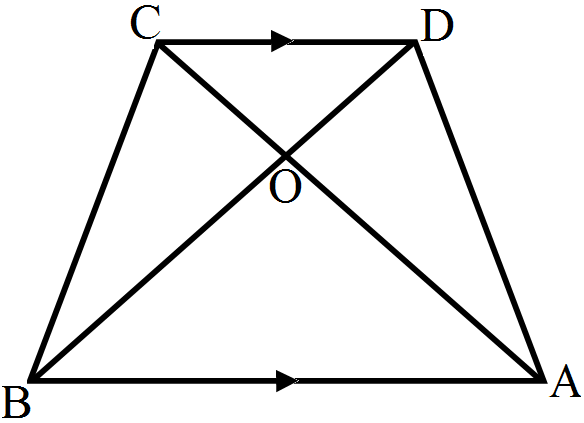
$\angle\text{AOB}=\angle\text{COD}$ (Vertically opposite angles)
$\angle\text{OAB}=\angle\text{OCD}$ (Alternate angles as AB || CD)
Applying AA similiarity criterion, we get:
$\triangle\text{AOB}\sim\triangle\text{COD}$
$\therefore\frac{\text{ar}(\triangle\text{AOB})}{\text{ar}(\triangle\text{COD})}=\frac{\text{AB}^2}{\text{CD}^2}$
$\Rightarrow\frac{84}{\text{ar}(\triangle\text{COD})}=\Big(\frac{\text{AB}}{\text{CD}}\Big)^2$
$\Rightarrow\frac{84}{\text{ar}(\triangle\text{COD})}=\Big(\frac{2\text{CD}}{\text{CD}}\Big)^2$
$\Rightarrow\text{ar}(\triangle\text{COD})=\frac{84}{4}=21\text{cm}^2$

$\angle\text{AOB}=\angle\text{COD}$ (Vertically opposite angles)
$\angle\text{OAB}=\angle\text{OCD}$ (Alternate angles as AB || CD)
Applying AA similiarity criterion, we get:
$\triangle\text{AOB}\sim\triangle\text{COD}$
$\therefore\frac{\text{ar}(\triangle\text{AOB})}{\text{ar}(\triangle\text{COD})}=\frac{\text{AB}^2}{\text{CD}^2}$
$\Rightarrow\frac{84}{\text{ar}(\triangle\text{COD})}=\Big(\frac{\text{AB}}{\text{CD}}\Big)^2$
$\Rightarrow\frac{84}{\text{ar}(\triangle\text{COD})}=\Big(\frac{2\text{CD}}{\text{CD}}\Big)^2$
$\Rightarrow\text{ar}(\triangle\text{COD})=\frac{84}{4}=21\text{cm}^2$
Download our appand get started for free
Experience the future of education. Simply download our apps or reach out to us for more information. Let's shape the future of learning together!No signup needed.*
Similar Questions
- 1View SolutionProve that the ratio of the perimeters of two similar triangles is the same as the ratio of their corresponding sides.
- 2In the given figure, O is a point inside a $\triangle\text{PQR}$ such that $\angle\text{PQR}=90^\circ,\text{OP}=6\text{cm}$ and $\text{OR}=8\text{cm}.$ If $\text{PQ}=24\text{cm}$ and $\text{QR}=26\text{cm},$ prove that $\triangle\text{PQR}$ is right-angled.View Solution
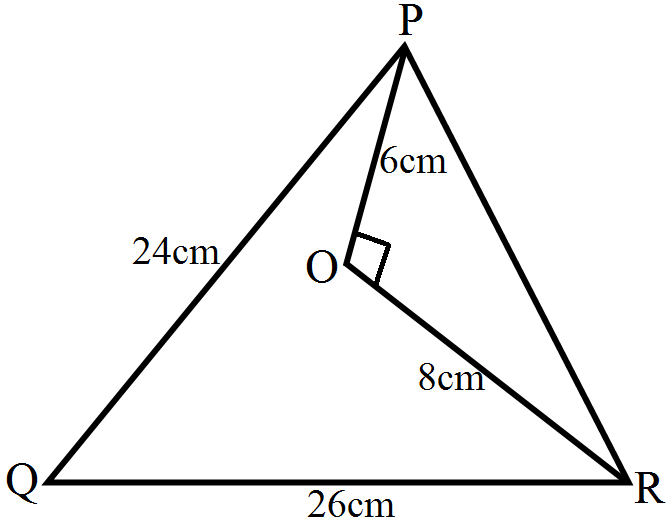
- 3View SolutionFind the height of an equilateral triangle of side 12cm.
- 4If the lengths of the sides BC, CA and AB of a $\triangle\text{ABC}$ are a, b and c respectively and AD is the bisectore of $\angle\text{A}$ then find the lengths of BD and DC.View Solution
- 5D and E are points on the sides AB and AC respectively of a $\triangle\text{ABC}$ such that DE || BC: If $\frac{\text{AD}}{\text{AB}}=\frac{8}{15}$ and EC = 3.5cm, find AE.View Solution
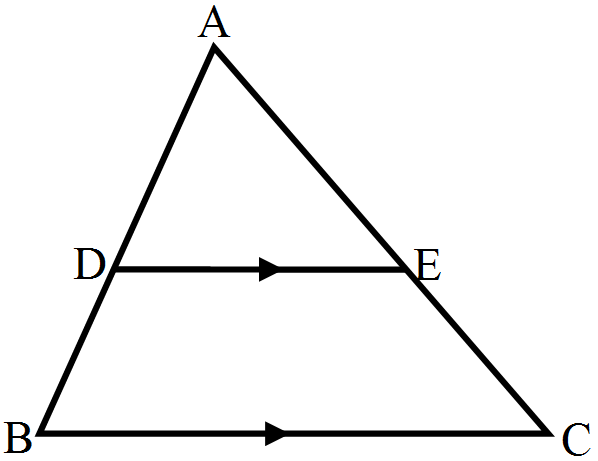
- 6The corresponding sides of two similar triangles are in the ratio $2 : 3$. If the area of the smaller triangle is $48\ cm^2$, find the area of the larger triangle.View Solution
- 7D and E are points on the sides AB and AC respectively of a $\triangle\text{ABC}$ such that DE || BC:View Solution
If AD = 3.6cm, AB = 10cm and AE = 4.5cm, find EC and AC.
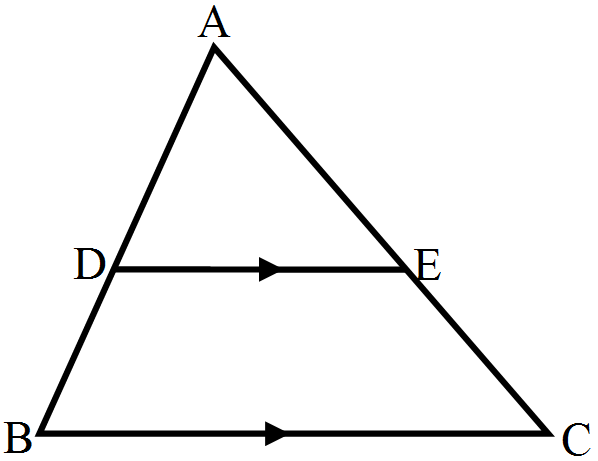
- 8Find the length of altitude AD of an isosceles $\triangle\text{ABC}$ in which AB = AC = 2a units and BC = a units.View Solution
- 9In the given figure, D is the midpoint of side BC and $\text{AE}\perp\text{BC}.$ If BC = a, AC = b, AB = c, ED = x, AD = p and AE = h, prove that.View Solution
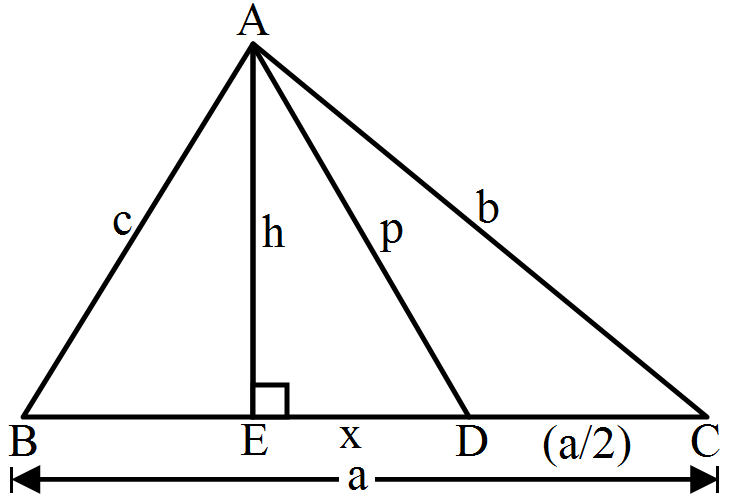
$(\text{b}^2-\text{c}^2)=2\text{ax}$ - 10An aeroplane leaves an airport and flies due north at a speed of $1000\ km$ per hour. At the same time, aeroplane leaves the same airport and flies due west at a speed of $1200\ km$ per hour. How far apart will be the two planes after $1\frac{1}{2}\text{hour}?$View Solution
